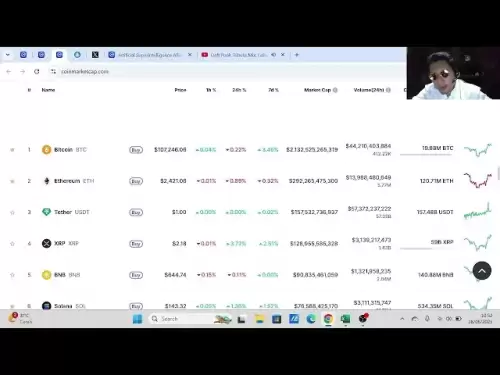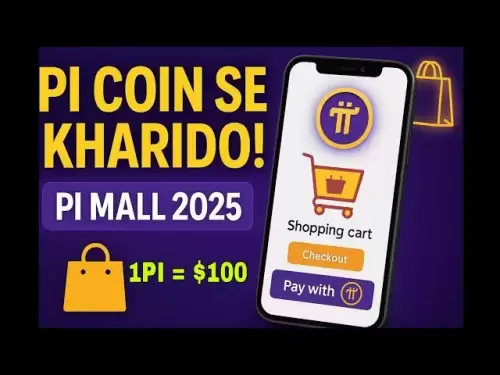-
 Bitcoin
Bitcoin $107,352.1067
0.28% -
 Ethereum
Ethereum $2,429.3531
-0.90% -
 Tether USDt
Tether USDt $1.0001
-0.02% -
 XRP
XRP $2.1894
4.62% -
 BNB
BNB $646.7968
0.36% -
 Solana
Solana $147.4290
4.03% -
 USDC
USDC $0.9998
-0.02% -
 TRON
TRON $0.2756
1.52% -
 Dogecoin
Dogecoin $0.1630
1.14% -
 Cardano
Cardano $0.5612
1.18% -
 Hyperliquid
Hyperliquid $37.0580
-0.05% -
 Bitcoin Cash
Bitcoin Cash $496.9410
-0.09% -
 Sui
Sui $2.7318
3.19% -
 Chainlink
Chainlink $13.1503
0.58% -
 UNUS SED LEO
UNUS SED LEO $9.0766
0.55% -
 Avalanche
Avalanche $17.7220
1.46% -
 Stellar
Stellar $0.2380
1.52% -
 Toncoin
Toncoin $2.8439
0.38% -
 Shiba Inu
Shiba Inu $0.0...01143
1.84% -
 Litecoin
Litecoin $85.8053
1.47% -
 Hedera
Hedera $0.1483
2.70% -
 Monero
Monero $314.3240
2.12% -
 Bitget Token
Bitget Token $4.6725
0.77% -
 Dai
Dai $1.0000
0.00% -
 Polkadot
Polkadot $3.3555
1.28% -
 Ethena USDe
Ethena USDe $1.0001
0.02% -
 Uniswap
Uniswap $7.0890
2.64% -
 Pi
Pi $0.5355
-3.40% -
 Pepe
Pepe $0.0...09393
1.06% -
 Aave
Aave $256.8136
-1.90%
Where can digital currency be bought and sold? Is the operation simple?
Digital currency can be traded on exchanges, P2P platforms, and DEXs, each varying in complexity and user-friendliness based on the platform and user experience.
May 12, 2025 at 11:28 pm
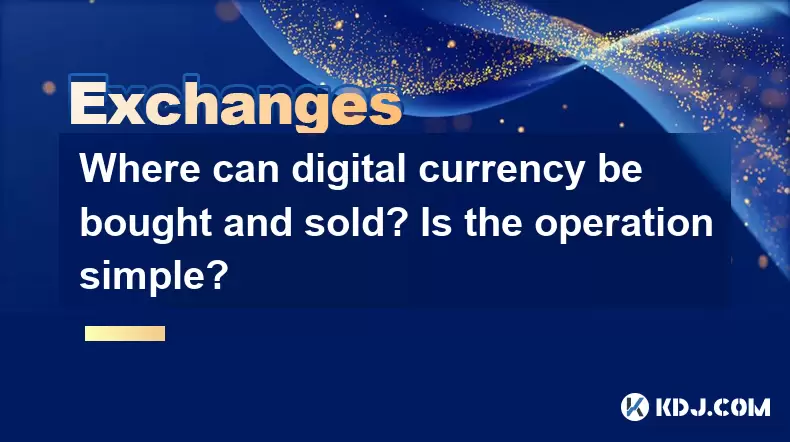
Digital currency can be bought and sold on various platforms, each offering different features and levels of complexity. The most common places to engage in these transactions include cryptocurrency exchanges, peer-to-peer platforms, and decentralized exchanges. The operation of buying and selling digital currency can vary in simplicity depending on the platform used and the user's familiarity with the process.
Cryptocurrency Exchanges
Cryptocurrency exchanges are the most popular platforms for buying and selling digital currencies. These platforms act as intermediaries that facilitate the exchange of cryptocurrencies for other assets, such as fiat money or other digital currencies. Some well-known exchanges include Coinbase, Binance, and Kraken.
To use a cryptocurrency exchange, users typically need to follow a series of steps:
- Register an account: Visit the exchange's website and sign up by providing personal information such as your name, email address, and sometimes a phone number.
- Verify your identity: Most exchanges require users to go through a Know Your Customer (KYC) process, which involves submitting identification documents like a passport or driver's license.
- Deposit funds: Once your account is set up and verified, you can deposit funds into your exchange wallet. This can be done using bank transfers, credit/debit cards, or other cryptocurrencies.
- Place an order: Navigate to the trading section of the exchange and select the digital currency you wish to buy or sell. You can place different types of orders, such as market orders (buying or selling at the current market price) or limit orders (setting a specific price at which you want to buy or sell).
- Withdraw funds: After completing a transaction, you can withdraw your digital currency to a personal wallet or convert it back to fiat and withdraw it to your bank account.
The operation on cryptocurrency exchanges can be straightforward once you are familiar with the platform, but it may take some time to get used to the interface and trading options.
Peer-to-Peer Platforms
Peer-to-peer (P2P) platforms allow users to buy and sell digital currencies directly with one another without the need for a centralized intermediary. Examples of P2P platforms include LocalBitcoins and Paxful.
The process of using a P2P platform involves the following steps:
- Create an account: Sign up on the P2P platform by providing your email address and setting up a password.
- Browse listings: Once registered, you can browse through listings of digital currencies offered by other users. Listings usually include the price, payment method, and location of the seller.
- Select a seller: Choose a seller that meets your criteria and initiate a transaction with them.
- Complete the transaction: Follow the seller's instructions to make the payment. Once the payment is confirmed, the seller will release the digital currency to your wallet.
- Leave feedback: After the transaction is complete, you can leave feedback for the seller to help build trust within the P2P community.
P2P platforms can be more complex to navigate than centralized exchanges, as users need to manage their own security and negotiate directly with sellers. However, they offer more flexibility and can be a good option for those who value privacy and control over their transactions.
Decentralized Exchanges
Decentralized exchanges (DEXs) operate on blockchain technology and allow users to trade digital currencies directly from their personal wallets without the need for a centralized intermediary. Examples of DEXs include Uniswap and SushiSwap.
To use a DEX, you typically need to:
- Connect a wallet: Use a compatible cryptocurrency wallet, such as MetaMask, to connect to the DEX.
- Select a trading pair: Choose the digital currencies you want to trade. DEXs often use liquidity pools to facilitate trades.
- Execute a trade: Enter the amount you want to trade and confirm the transaction. The trade will be executed directly between your wallet and the liquidity pool.
- Manage your funds: After the trade, your digital currency will be stored in your connected wallet, giving you full control over your assets.
DEXs can be more challenging to use than centralized exchanges, as they require a good understanding of blockchain technology and wallet management. However, they offer greater privacy and security, as users do not need to trust a centralized entity with their funds.
Simplicity of Operations
The simplicity of buying and selling digital currency can vary greatly depending on the platform and the user's experience level. For beginners, centralized exchanges like Coinbase offer a user-friendly interface and straightforward processes for buying and selling digital currencies. These platforms often provide detailed guides and customer support to help new users navigate the system.
On the other hand, P2P platforms and DEXs can be more complex and require a higher level of technical knowledge. Users need to understand the risks involved in dealing directly with other individuals and managing their own security. However, these platforms can offer more control over transactions and greater privacy.
Security Considerations
When buying and selling digital currency, security is a crucial factor to consider. Each platform has its own security measures in place, but users must also take steps to protect their own assets.
- Use strong passwords: Ensure that your exchange or wallet account is protected by a strong, unique password.
- Enable two-factor authentication (2FA): Most platforms offer 2FA, which adds an extra layer of security to your account.
- Be cautious with personal information: Only provide personal information to reputable platforms and be wary of phishing attempts.
- Use secure internet connections: Avoid using public Wi-Fi when accessing your accounts, as these connections can be less secure.
- Store digital currency safely: Consider using a hardware wallet for long-term storage of your digital currency, as these devices offer high levels of security.
By following these security practices, users can help protect their digital assets and ensure a safer trading experience.
Frequently Asked Questions
Q: Can I buy digital currency with cash?
A: Yes, some P2P platforms like LocalBitcoins allow you to buy digital currency with cash. You would need to find a seller who accepts cash payments and arrange a meeting to complete the transaction.
Q: Are there any fees associated with buying and selling digital currency?
A: Yes, most platforms charge fees for transactions. These can include trading fees, withdrawal fees, and deposit fees. The specific fees vary depending on the platform and the type of transaction.
Q: How long does it take to buy or sell digital currency?
A: The time it takes to complete a transaction can vary. On centralized exchanges, buying or selling digital currency can often be done instantly. On P2P platforms, the time can vary depending on the payment method and the seller's response time. DEX transactions are typically processed within minutes, depending on the blockchain's congestion.
Q: Can I buy digital currency anonymously?
A: It can be challenging to buy digital currency completely anonymously, as most platforms require some form of identity verification. However, some P2P platforms and DEXs offer more privacy options, though these may come with higher risks.
Disclaimer:info@kdj.com
The information provided is not trading advice. kdj.com does not assume any responsibility for any investments made based on the information provided in this article. Cryptocurrencies are highly volatile and it is highly recommended that you invest with caution after thorough research!
If you believe that the content used on this website infringes your copyright, please contact us immediately (info@kdj.com) and we will delete it promptly.
- Altcoins, Explosive Gains, and Cryptocurrency: What's the Hype?
- 2025-06-28 21:12:19
- SEI Mirroring Solana: Price Spikes and the Next Big Crypto?
- 2025-06-28 20:52:13
- Pi Network's Pi2Day: Token Tank and Disappointing Rollout?
- 2025-06-28 21:27:13
- PENGU Price Surges: Are Whales Targeting $0.0149?
- 2025-06-28 20:30:12
- Bitcoin Adoption, Portfolio Allocation, and Financial Advisors: A New Era
- 2025-06-28 21:27:13
- Kaanch vs. XRP: Spotting the Next Big Thing & Entry Price Opportunities
- 2025-06-28 21:50:12
Related knowledge
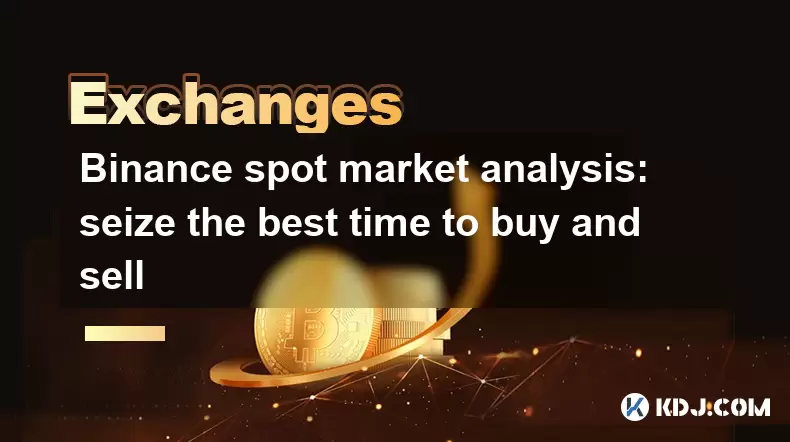
Binance spot market analysis: seize the best time to buy and sell
Jun 19,2025 at 04:56pm
Understanding the Binance Spot MarketThe Binance spot market is one of the most popular platforms for cryptocurrency trading globally. It allows users to trade digital assets at current market prices, making it essential for traders aiming to buy low and sell high. Unlike futures or margin trading, spot trading involves direct ownership of the asset aft...
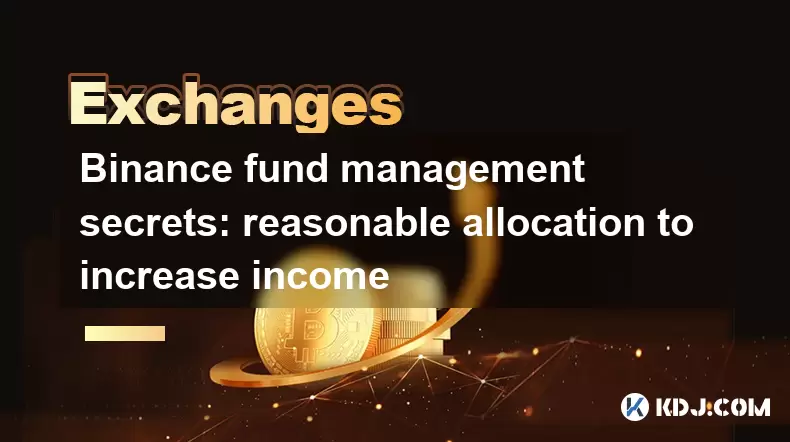
Binance fund management secrets: reasonable allocation to increase income
Jun 22,2025 at 02:29pm
Understanding Binance Fund ManagementBinance fund management involves strategic allocation of your cryptocurrency assets to optimize returns while managing risk. The key to successful fund management lies in understanding how different investment options on the Binance platform can be utilized to create a diversified portfolio. This includes spot tradin...
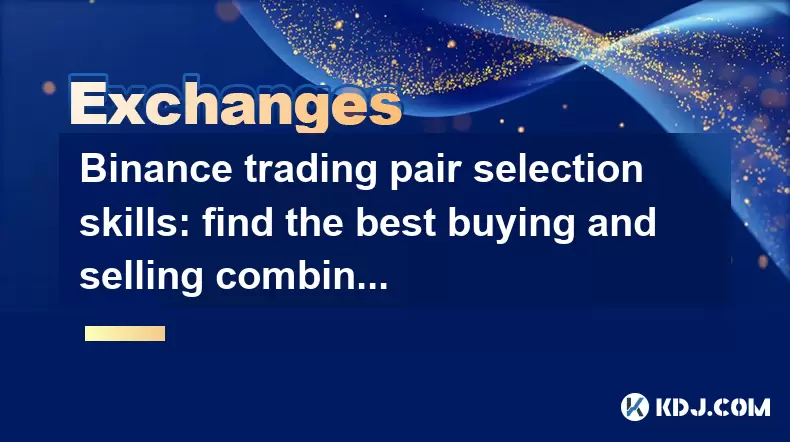
Binance trading pair selection skills: find the best buying and selling combination
Jun 23,2025 at 02:49am
Understanding the Basics of Trading Pairs on BinanceBefore diving into trading pair selection skills, it's essential to understand what a trading pair is. On Binance, a trading pair refers to two cryptocurrencies that can be traded against each other. For example, BTC/USDT means Bitcoin is being traded against Tether. Each trading pair has its own liqui...
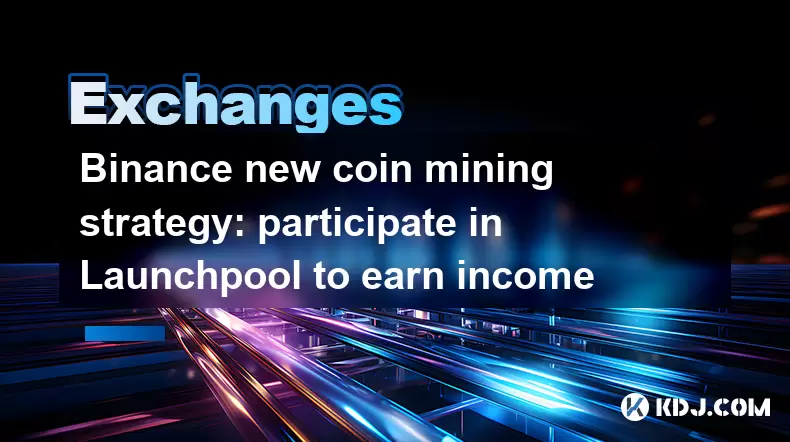
Binance new coin mining strategy: participate in Launchpool to earn income
Jun 23,2025 at 11:56am
What is Binance Launchpool and how does it work?Binance Launchpool is a feature introduced by the world’s largest cryptocurrency exchange, Binance, to allow users to earn new tokens through staking. This platform enables users to stake their existing cryptocurrencies (such as BNB, BUSD, or other supported assets) in exchange for newly launched tokens. T...
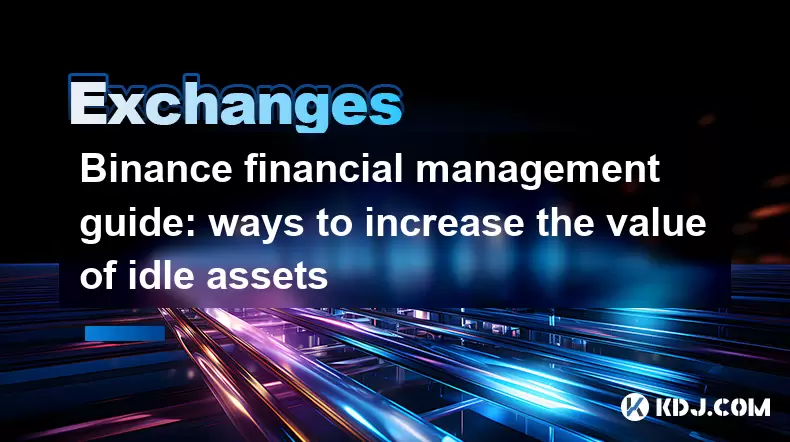
Binance financial management guide: ways to increase the value of idle assets
Jun 19,2025 at 11:22pm
Understanding Idle Assets in the Cryptocurrency SpaceIn the fast-paced world of cryptocurrency, idle assets refer to digital currencies that are not actively being used for trading, staking, or yield farming. Holding these funds in a wallet without utilizing them means missing out on potential growth opportunities. Binance, as one of the leading platfor...
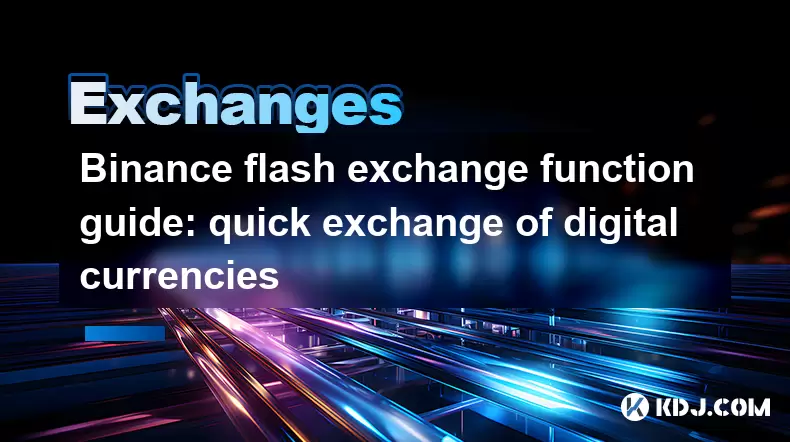
Binance flash exchange function guide: quick exchange of digital currencies
Jun 23,2025 at 12:29pm
What is the Binance Flash Exchange Function?The Binance Flash Exchange function is a powerful tool designed to allow users to instantly swap between supported cryptocurrencies without the need for placing traditional buy/sell orders. This feature simplifies the trading process by offering a direct exchange mechanism, eliminating the requirement to conve...

Binance spot market analysis: seize the best time to buy and sell
Jun 19,2025 at 04:56pm
Understanding the Binance Spot MarketThe Binance spot market is one of the most popular platforms for cryptocurrency trading globally. It allows users to trade digital assets at current market prices, making it essential for traders aiming to buy low and sell high. Unlike futures or margin trading, spot trading involves direct ownership of the asset aft...

Binance fund management secrets: reasonable allocation to increase income
Jun 22,2025 at 02:29pm
Understanding Binance Fund ManagementBinance fund management involves strategic allocation of your cryptocurrency assets to optimize returns while managing risk. The key to successful fund management lies in understanding how different investment options on the Binance platform can be utilized to create a diversified portfolio. This includes spot tradin...

Binance trading pair selection skills: find the best buying and selling combination
Jun 23,2025 at 02:49am
Understanding the Basics of Trading Pairs on BinanceBefore diving into trading pair selection skills, it's essential to understand what a trading pair is. On Binance, a trading pair refers to two cryptocurrencies that can be traded against each other. For example, BTC/USDT means Bitcoin is being traded against Tether. Each trading pair has its own liqui...

Binance new coin mining strategy: participate in Launchpool to earn income
Jun 23,2025 at 11:56am
What is Binance Launchpool and how does it work?Binance Launchpool is a feature introduced by the world’s largest cryptocurrency exchange, Binance, to allow users to earn new tokens through staking. This platform enables users to stake their existing cryptocurrencies (such as BNB, BUSD, or other supported assets) in exchange for newly launched tokens. T...

Binance financial management guide: ways to increase the value of idle assets
Jun 19,2025 at 11:22pm
Understanding Idle Assets in the Cryptocurrency SpaceIn the fast-paced world of cryptocurrency, idle assets refer to digital currencies that are not actively being used for trading, staking, or yield farming. Holding these funds in a wallet without utilizing them means missing out on potential growth opportunities. Binance, as one of the leading platfor...

Binance flash exchange function guide: quick exchange of digital currencies
Jun 23,2025 at 12:29pm
What is the Binance Flash Exchange Function?The Binance Flash Exchange function is a powerful tool designed to allow users to instantly swap between supported cryptocurrencies without the need for placing traditional buy/sell orders. This feature simplifies the trading process by offering a direct exchange mechanism, eliminating the requirement to conve...
See all articles























